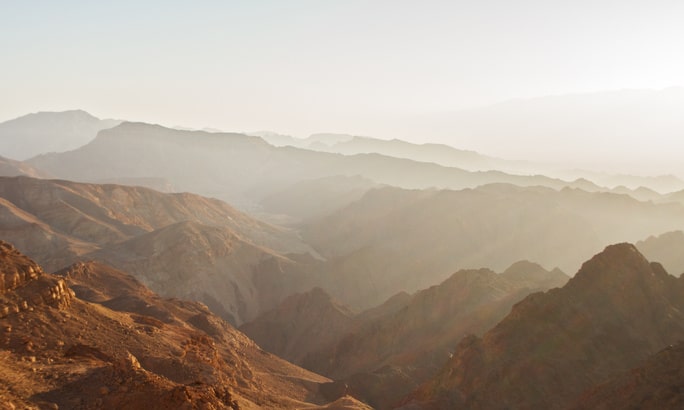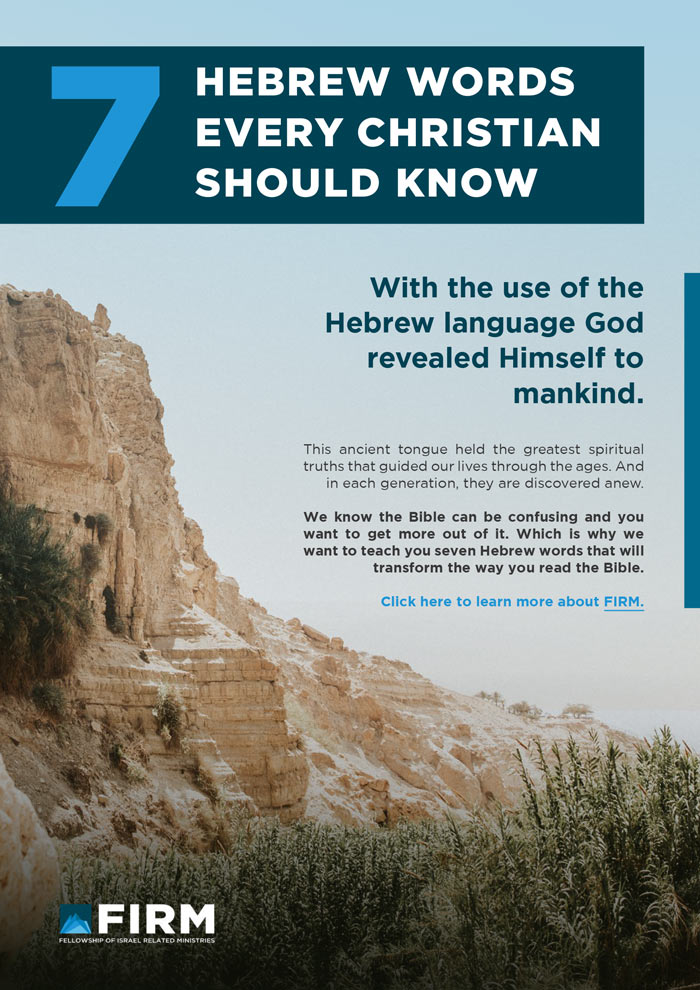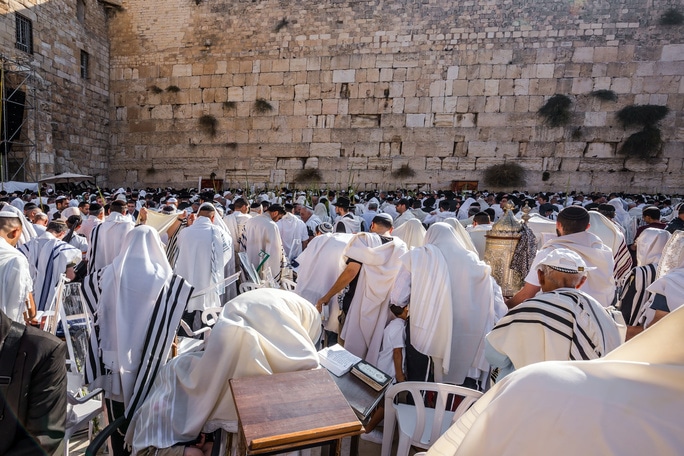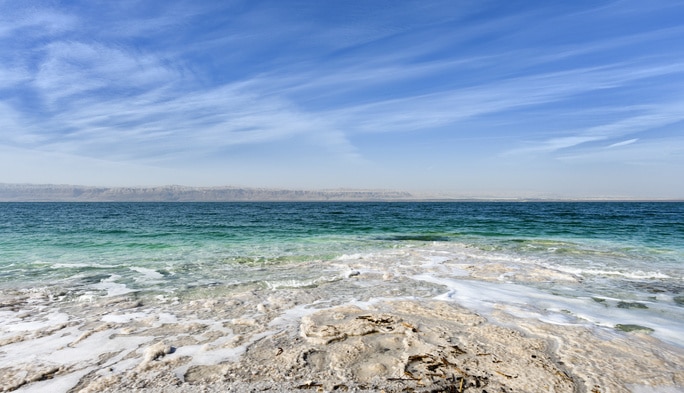What does Yirah mean?
The Hebrew word translated into ‘awe’ in the Bible is yirah (יראה, pronounced yir-ah). It often directly translates into fear, like “fear of the Lord,” and it can also mean respect, reverence, and worship. But make no mistake about it, yirah is strongly connected to ‘trembling’.
What comes to your mind when you think of awe?
Perhaps you think of nature, the expanse of the Grand Canyon, or the rolling green of Swiss Alps. You may think of the majesty of the night sky on a quiet night. Or perhaps an architectural wonder, such as the pyramids in Giza, the only remaining ‘wonder’ of the original Seven Wonders of the World…
You most likely have your own vision of ‘awe’ which is personal to you. It could be a special, personal memory or a loved one. The miracle of birth up close renders us speechless, and the reality of death as we experience loss is enough to shake all our confidence and poise. We learn how little we actually know and understand, and the experience fills us with fear and trembling… it fills us with yirah – awe.
Moses was filled with fear (yirah) when he begged God to see His glory and could not behold it lest he should die. Moses could not see God face to face. The Israelites were filled with fear (yirah) when Moses came down Mount Sinai; they were so shaken that they promised with one voice to do whatever the Lord said.
In English parlance, the translation of yirah has similar origins. ‘Awe’ comes from the early Scandinavian words for terror, dread, uproar, discipline, and restraint: Old Icelandic agi, Swedish aghi, and old Danish aughæ.
Yirah meaning over the Centuries
However, by the 18th century, the main definition of the word moved away from fear and focused on reverence. My guess is, the Romantic poets and their wonder of the natural world, God’s creation, tipped the scale of awe from fear to reverence.
But the Romantic poets and the Israelites had something in common: sight. They both were overwhelmed by their vision. For the Romantics, it was the sublime of the natural world and mystery therein. And for the Israelites, it was beholding the presence of God, which they beheld with fear and trembling, but they could not see His face.
As believers, we are encouraged that we have the Messiah – the image of the invisible God, and the Holy Spirit as a seal. The Son and the Spirit are a promise for what is to come in eternity – seeing the Father face to face, fully, without mediation.
Behold the Wonder
Awe—Yirah, has to do with beholding something that is beyond one’s capabilities and understanding. It would certainly take the most stalwart adventurer to stand at the edge of a great height and not have their knees buckle in the slightest.
And the frozen explorers scattered across the ascent of Mount Everest were once determined individuals. But how the mighty fall. Beholding such great heights and natural wonders both fill us with wonder and fear.
Beholding God’s full glory is equally terrifying! But the Lord spared us – He mediates His glory through His Son, the Messiah Jesus. He is the image of the invisible God as the Apostle Paul tells us in Colossians 1:15:
“The Son is the image of the invisible God, the firstborn over all creation.”
What can we learn from Yirah?
1. Yirah calls us to behold and worship.
Yirah calls us to worship—the psalms are full of David’s wonder at the natural world and God’s majesty, wisdom and power. Just a few examples:
“In whose hand are the depths of the earth, the peaks of the mountains are His also. The sea is His, for it was He who made it, and His hands formed the dry land.” –Psalm 95:4-5
In Psalm 25, David describes the voice of the LORD as powerful, majestic, it hews out flames of fire and shakes the wilderness. He writes, “the God of glory thunders, the LORD is over many waters.” And continues with: “The voice of the LORD makes the deer to calve and strips the forests bare; and in His temple everything says, Glory!” (Psalm 25:3-9).
“O LORD, how many are Your works! In wisdom You have made them all; The earth is full of Your possessions. There is the sea, great and broad, In which are swarms without number, Animals both small and great. There the ships move along, And Leviathan, which You have formed to sport in it.” –Psalm 104:24-26
Job in Awe of God
The Yirah awe brings Job healing from his grief. In response to Job’s laments, God, in true Jewish fashion, answers Job’s question with a question:
“Who is this who darkens the divine plan by words without knowledge?Now tighten the belt on your waist like a man, and I shall ask you, and you inform Me! Where were you when I laid the foundation of the earth?” (Job 38:1-4)
In what many consider some of the most beautiful passages of Hebrew poetry in the Tanakh, God continues to question Job. He asserts His creation of the entire cosmos (Job 38-39) and the entire earth (Job 38: 39-39:30). To God’s “virtual tour” of the universe and the planet, Job says:
“Behold, I am insignificant; what can I say in response to You? I put my hand on my mouth. I have spoken once, and I will not reply; Or twice, and I will add nothing more.” (Job 40:4-5)
The Awe of Being at Peace
Job was awestruck and knew his place in relationship to God. He dared not argue, it was the God of the entire universe he was speaking to after all!
Then, in chapter 42, Job answers the Lord: “I know that You can do all things, and that no purpose of Yours can be thwarted…I have heard of You by the hearing of the ear; But now my eye sees You; therefore, I retract, and I repent in dust and ashes.” (Job 42: 2, 5-6)
Job was comforted in the fact that the God of the Universe did not forget and did not fall asleep. Nothing was out of His control or foreknowledge. One can surmise that Job’s loss and grief did not go away. But Job’s encounter with the God of the Universe changed him and made him strong enough to not be bitter about his loss and to worship God still.
Questions to ponder:
Is there anything in my life I am not properly seeing, which is taking away from my awe and worship? What can I look at and mediate upon to renew my yirah – my awe? Is there a painful area of my life that I am not letting God speak into—how can God restore my Yirah in Him?

2. Yirah challenges us to be wise and obey.
Just as Job was chastened when he experienced the power and might of God firsthand, we are too. That is, when we come to the profound knowledge that God’s thoughts are not our thoughts, and His ways are not our ways (Isaiah 55:8). We would be wise to remember this truth, and Proverbs tell us that the beginning of all wisdom is fear – yirah – of the Lord.
Alexander Pope’s often quoted line, “Fools rush in where angels fear to tread”, has become a part of the English lexicon since it was first penned in 1711. And not without good reason. Our wisdom is gauged by our awe of God and the world He created.
Author Lisa Bevere rightly said, “We are a generation that has been stripped of our awe”. But Scripture tells us that having yirah toward God is the beginning of wisdom (Proverbs 9:10). This means we have to regain our sense of awe and reverence toward God. The best way to do this, according to Scripture, is to follow His instructions (1 John 5:3), and to meditate upon His word.
Jesus boiled these instructions down to two simple things: Love God, and love your neighbor. Do this… and we can regain our awe in God.
The Great Lack of Awe
God’s design gives sanctity, purpose, and dignity to the rhythms of life and the creation therein. Not having yirah – the fear of the Lord – strips all such sanctity and meaning away. We can see the effects of this in our culture everywhere. Men and women demean each other, children do not respect their parents, and parents exasperate their children.
Excessive consumerism and materialism have whittled down individual worth. It dropped down to “social capital” and “net worth” and “likes” in social media clout. We are driven by being a somebody to everybody, but in our busyness and the rush, we lose our awe.
Like Pope said…fools rush in. Having a yirah type of awe gives us the wisdom to pause and slow down. To examine the motives of our heart. And perhaps to think of people and areas of our lives that simply need more time, care and attention. The Lord is not hasty and His timing and care is well thought out.
He has called us to be stewards of our time, our talents and those in our care. Good stewards think about their actions and have patience. They understand the weight of their responsibility and the dignity of their task. Pausing allows us to be better worshippers – we love better when we can see our love through with patience.
Questions to ponder:
Lord, in what areas of my life do I assume I know everything—where am I rushing in where angels fear tread? What do I need to think about more—my routine? My parenting? How I am spending my free time? Where can I grow in learning to love you, God, and learning to love others and obey your commands?
3. Yirah gives us a future hope.
The Romantic poets knew that we are more than just matter. Our hearts beat not with just blood, but with soul and spirit. The universe is not just a ticking clock, made by a divine watchmaker who made it and left it behind.
The entire cosmos and history of humanity have purpose and design—as do our individual lives! This is a truth we are taught time and time again, but how often do we think about it? Our lives, from beginning to the end, have significance.
The Apostle Paul says: “No eye has seen, no ear has heard, and no mind has imagined the things that God has prepared for those who love him.” (1 Corinthians 2:9)
Paul continues to encourage us in chapter 4:
“Therefore, we do not lose heart, but though our outer person is decaying, yet our inner person is being renewed day by day. For our momentary, light affliction is producing for us an eternal weight of glory far beyond all comparison, while we look not at the things which are seen, but at the things which are not seen; for the things which are seen are temporal, but the things which are not seen are eternal.” (1 Corinthians 4:16-18)
The Awe before the Throne of Grace
We have yet to behold all that God has in store for us, and for all of creation. We have the blessed assurance of salvation, and a relationship with the living God. It was made possible through Messiah Jesus and the power of Ruach HaKodesh (the Holy Spirit).
Although Moses communed with God daily, he still could not see His face directly. He was filled with yirah – fear and trembling. But we can have a relationship with God of the Universe through the Messiah Jesus! With yirah, but also with full confidence and assurance that we will be received when we come boldly before the throne of grace. (Hebrews 4:16)
What awe-inspiring, yirah-inspiring promises we have in Messiah Jesus!
Lord, please restore my sight so I can behold all that you have in store for me, this day, and every day. And please encourage me in the everlasting!

7 Hebrew Words Every Christian Should Know: Free PDF Download
With the use of the Hebrew language God revealed Himself to mankind. This ancient tongue held the greatest spiritual truths that guided our lives through the ages. And in each generation, they are discovered anew.
We know the Bible can be hard to understand and you want to get more out of it. Which is why we want to teach you seven Hebrew words that will transform the way you read the Bible.
Articles Related to Hebrew Meaning of Yirah: What Connects Fear and Awe?
Estimated reading time: 10 minutes

